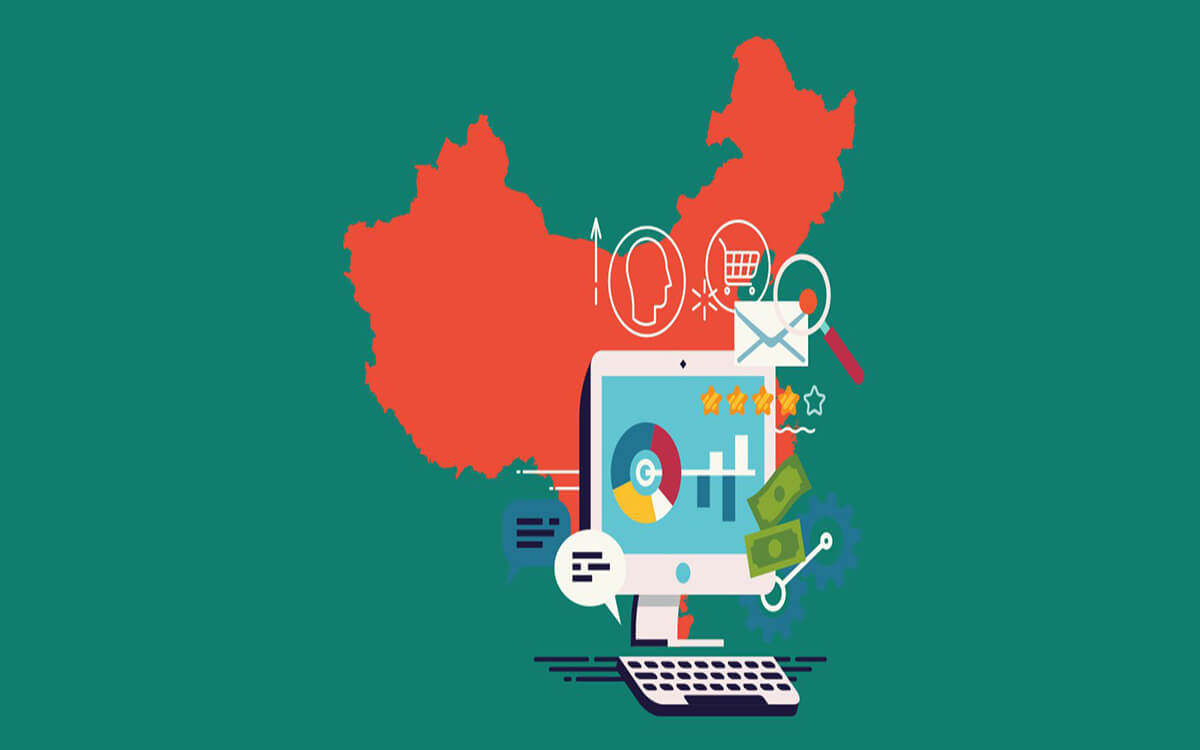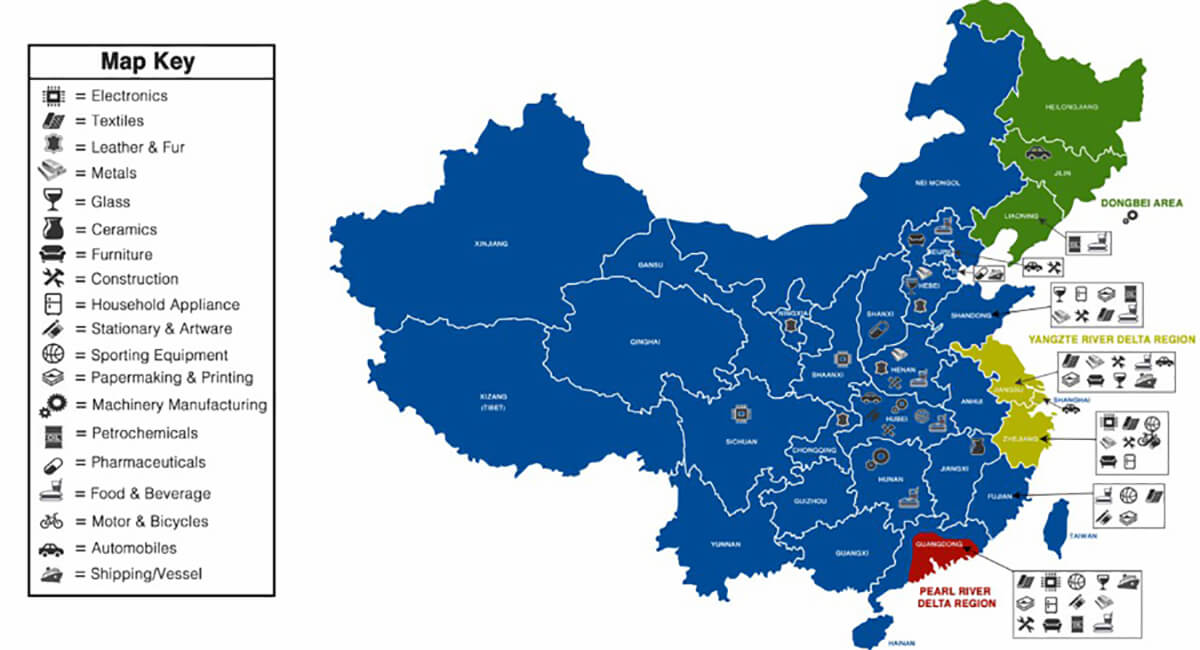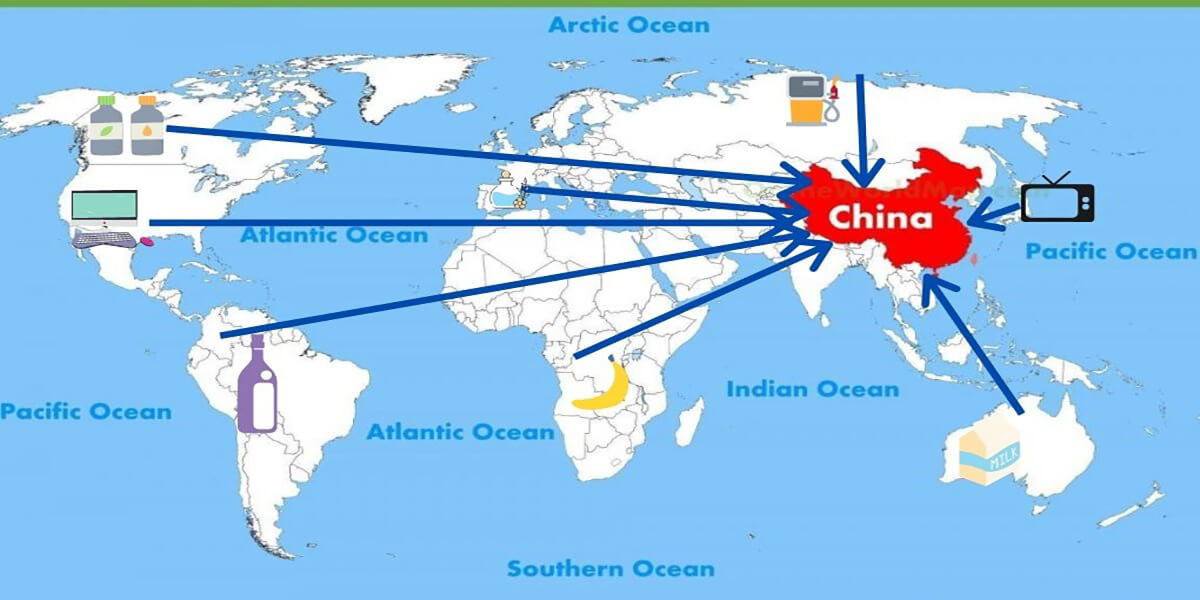Want to start selling your products in China but don’t know where to find a qualified distributor? Don’t hesitate any longer! This article will teach you everything you need to know about finding reliable China distributors. From online directories and trading companies to trade shows, we have you covered. What are you waiting for? Start expanding your business to the world’s largest market today!
1. What do you need to know before looking for a Chinese distributor?
Working with Chinese distributors comes with its own set of benefits, but it’s not without its challenges. Many international companies start looking for distributors but become disillusioned when their expectations exceed what the Chinese supplier or distributor is ready to provide. Therefore, before embarking on the journey to find your ideal match, it is crucial to understand the fundamentals of distribution in China.

2. What are the benefits of working with Chinese distributors?
It is not uncommon for foreigners to team up with distributors to capture the Chinese market. These companies can help you import, store, sell, transport, and even market if you need it. There are many reasons why working with a dealer can be beneficial to you, including:
- They have a large network of partners who are able to sell and deliver your products directly to Chinese customers and retail stores.
- Having a reseller means you don’t need to register your company in China, which can be a challenging and lengthy process that is best avoided.
- Since distributors receive a commission from sales, they use this as a huge incentive to find as many sales as possible.
- They also have extensive local market knowledge and are aware of many Chinese companies that may be beneficial to your case.
- Since they are locals, they are better at regulatory compliance and logistics and understand the many Chinese suppliers, sales channels, and payment and shipping conditions required by different industries.
- The local dealers speak Chinese which is very helpful and facilitates many of the processes that foreign businesses are involved in.
3. What are the disadvantages?
Unfortunately, if you can’t find the right dealer, you may encounter some disadvantages.
- Picky dealers: Some partners can be picky when it comes to products, so you may want to look into brands within the Chinese market. Because the market competition is too fierce, dealers have more products to choose from. If your sales don’t reflect the numbers they want, they’ll move on to another company.
- Seek Exclusive Rights: If this is your first time selling in China, it is best to avoid signing an agreement that gives your distributor exclusive rights to sell your products. This is because they may be working with a competing brand and they may have simply forgotten about your product. But if your reseller insists on exclusive rights to your product, be sure to include sales quotas in the agreement that reduce the risk of bad sales.
- There is little control over distribution: everything is in Chinese, your distributors work through a very opaque network, and you will have a hard time fully understanding the distribution process.

4. Where can I find distributors for the Chinese market?
To find a dealer, there are several options to consider. Trying just one avenue is unlikely to provide all the resources your brand needs. Therefore, it is important to try various sources and come up with a solution based on your company’s needs.
For those who don’t speak Chinese, finding a dealer can be an especially challenging task. Make sure you have the right people around you to make things easier and don’t be afraid to spend time and money to avoid failure in the long run. Here are some of the most common options for finding potential dealers.
1) China Trade Fair
Attending trade shows is a great way (as long as you’re well prepared) to make tons of connections with just one visit to China and can help you find a large number of Chinese distributors and importers. Showcasing your products will help attract the attention of interested parties, and there are many trade shows you can register to attend. But it’s important to remember that trade shows can be crowded, and it can be difficult to communicate your brand and company to others.
2) Chamber of Commerce
When looking for distributors, you should consider contacting the Chinese Chamber of Commerce, as most chambers of commerce will provide companies with lists of distributors within their industry. They will have an extensive network for you to browse and may even have dealer contact details. At the very least, they may be able to connect you with the right service provider.
3) Tmall B2D platform
Tmall B2D (Business to Dealer) is a channel within Alibaba’s large B2C platform Tmall. Tmall B2D is designed for manufacturers and brands to connect with dealers in a wholesale environment. It provides a centralized and efficient platform for business transactions and communication between manufacturers brand owners and distributors.
On Tmall B2D, here are some steps for finding reliable Chinese distributors:
- Create an account: Register an account on Tmall B2D. You need to provide the necessary business information and meet the standards set by Alibaba to become a seller.
- Research distributors: Use the platform’s search and filter features to find distributors that match your product type and target market. Check out their profile to learn about their business scope, product range, and distribution network.
- Check dealer reputation: Tmall has an internal rating system that rates dealers based on their performance, customer service, and reliability. Look for dealers with high ratings and positive customer feedback.
- Communication: Tmall B2D provides tools for direct communication between merchants. Use it to contact potential dealers, discuss terms, and learn about their capabilities.
- Take advantage of Alibaba’s services: Alibaba offers additional services such as trade assurance to protect your transactions. This can be a useful tool in building trust when dealing with new dealers.
Remember, while Tmall B2D can help find distributors, it’s always important to do your own due diligence to ensure any potential partners are reliable and a good fit for your brand.

4) Online channels
Finding reliable Chinese dealers online is an extensive process that requires careful browsing of various resources and platforms. Start by exploring B2B platforms like Alibaba, Made in China, and Global Sources, which offer extensive distributor directories across multiple industries.
Don’t overlook the power of social media and e-commerce platforms such as LinkedIn, WeChat, Weibo, Tmall, and JD.com, which can provide an ideal environment for identifying and connecting with potential dealers. In addition, online adaptations of traditional trade fairs and exhibitions can provide opportunities for direct contact with potential dealers.
5) Third party
Foreign companies often hire third parties to help them find suitable Chinese distributors. They will analyze the market and provide translations for your product descriptions, which will then be listed online for distributors to view. Third parties may also attend trade shows on your behalf to promote your products at these events. Doing this can save you a lot of time and give you a lot of exposure. For example Toopus.
5. Potential customer development and how to attract the attention of Chinese dealers.
Since traditional communication methods such as email are not widely used in China and distributors in China receive a large number of requests on a daily basis, establishing initial contact with them can be a challenge. That’s why we recommend that you combine your prospecting efforts with your online marketing efforts and get dealers to contact you, rather than the other way around. Online presence not only increases your visibility but also enhances your product sales potential, making your brand more attractive in the eyes of Chinese dealers.
In addition, being well-known to Chinese consumers in the domestic market is also very valuable. It gives brands more leverage when negotiating deals.
So, here are some channels you need to consider when building a distribution network in China that will also improve your brand reputation among direct consumers!
1) Website + Baidu SEO
You should create a Chinese website for your products so that dealers can find you online as well. Fortunately, there are many e-commerce agencies that can help you with your SEO and SEM needs, which can be tailored for the Chinese market. If you have doubts or questions, you can go to Baidu because China does not use Google.
2) Public relations, Chinese forums, and Q&A
Having a great PR strategy will help your brand build awareness and credibility, two criteria that are critical in setting you apart from the competition and something dealers will consider.
A forum is a great way to build your online reputation and build a strong online presence. When customers talk about your items, the interest they show won’t go unnoticed by Chinese dealers. The best part is that conversations on the forum can be created initially by your marketing team, and then the content will be generated organically as traffic increases.

3) Chinese social media account: WeChat
Having an active official presence with a decent following will undoubtedly provide additional benefits in persuading dealers to work with you. Still, when it comes to tools for finding Chinese dealers, the best Chinese social media is WeChat, which is widely used among professionals in China and is the best channel for cultivating your contact list.
With 1 billion users, WeChat is China’s largest social media platform where you can find and connect with potential dealers while marketing your brand. It can be used as a communication tool and can also showcase your products through WeChat brochures. There are many benefits to using a manual, including:
- Easy to use and share
- lower cost
- interactive
- More intuitive than PDF
4) Meet the dealer in person
Choosing a Chinese distributor and becoming a partner requires building a long-term relationship, so you should meet them in person. During the meeting, you need to evaluate the work they do and how serious they are about working with you. They will also take you more seriously if you take the time to meet with them.
When touring their facility, be sure to ask the necessary questions. To help you get started, here are a few questions you can ask when talking to your dealer:
- How many years have you been in business?
- Do you have a success story to share?
- What companies have you worked with?
- Where are your partners?
- How will you help us grow in China?
- What is the biggest challenge you face?
6. Choose a Chinese distributor
Once you’ve narrowed down your reseller candidates, there are a lot of questions you need to ask. When you do your background check, be sure to research the company using both Chinese and English materials. Some China-specific agencies can provide you with a comprehensive assessment of a company.
1) Before making the big decision to cooperate with a Chinese distributor, you should consider the following questions:
- What is the company’s background? How old are they and what is their ownership history?
- What is the size and capabilities of their sales force?
- Who were their previous clients? Can they provide customer feedback or references from the banking and trade sectors?
- What are their distribution channels?
- What is their regional coverage?
- What outlets and call frequencies are covered?
- Do they have adequate transportation and storage facilities?
- Do they have a minimum sales quota? (This is necessary if they have exclusive rights to the product)
- What are the terms of payment and shipping?
- How will they handle trademark registration? (This process is best done by yourself – sometimes a distributor will register the product in their name)
- Who pays what? (This can include presentation materials, sales training, marketing, translation, etc.)
- What laws will the distribution relationship be subject to? (Preferably this is done in Chinese courts, using Chinese law, under a distribution agreement enforceable in China)
- How do you handle warranties?
- Do you use China NNN agreements to protect trade secrets? (This stands for non-use, non-disclosure, and non-circumvention. If they say no, best to find someone else)
- Is this the right dealership for you?
- Are they easy to contact?
- Will they benefit from your product?
- Do they have a conflict of interest or any dealings with competitors?
- Do they have a history of representing products similar to yours?

7. Support your dealers to increase sales
It is important to remember that just as the dealer has an obligation to you, you also have an obligation to them. Dealers are generally expected to have some knowledge of the products you offer them and the marketing that goes with them. But it’s also your responsibility to provide them with all the necessary information and training they need to encourage sales.
It is not uncommon for dealers to expect foreigners to provide some funds for trade shows or pay for training. To make everything run smoothly, make sure you are both on the same page before entering into a partnership. It’s also important to include everything you need in the final agreement.
It is also worth remembering that the distributor will not have an in-depth knowledge of the product specifications, at least compared to the exporter’s salesperson or sales engineer. Therefore, it can be helpful to upload educational materials on your product website or have staff on hand to coach your dealer team from the beginning.
Doing so will help improve their sales capabilities. If they are not ready to promote your product, they will not be able to make you money. It’s best to start with a marketing plan that you can share with them. In the end, the marketing efforts are still your responsibility, so you should do whatever you can to help them make sales.
8. Conclusion
Toopus provides market research services to help you understand the Chinese market and identify key trends, consumer behavior, and competitors in your industry. We use this knowledge to advise on the best distribution strategies for your products, ensuring you can make informed decisions about pricing, product positioning, and target consumer groups.





Leave A Comment